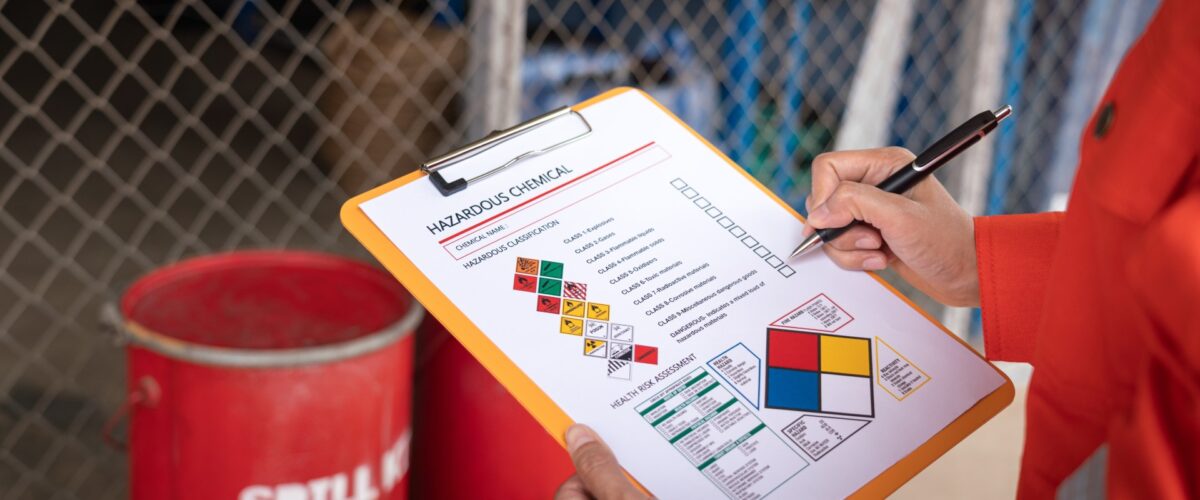- Environmental Protection Agency (EPA) Region 9.
- California Environmental Protection Agency (CalEPA).
- State Water Resources Control Board (SWRCB).
- Regional Water Quality Control Boards (RWQCB).
- California Occupational Safety and Health Administration (Cal/OSHA).
- California Office of Emergency Services (Cal OES).
- California Department of Fish and Wildlife (CDFW).
- Local Certified Unified Program Agencies (CUPA).
A Spill Prevention, Control, and Countermeasure (SPCC) training covers requirements and best practices for facilities to prevent oil spills and properly respond if one occurs. Personnel learn how to develop and implement an SPCC plan that identifies risks, establishes controls like secondary containment, outlines inspection procedures, and details emergency response steps. Proper training ensures all facility personnel understand their role in keeping oil safely contained and are prepared to rapidly address leaks or spills if they happen. It is critical for preventing environmental contamination, regulatory non-compliance, and harm to workers or the community. A compliant, well-trained team minimizes the chance of an oil spill, and prevents a small leak from becoming a large-scale incident. Employees at facilities that stores, processes, refines, uses or consumes oil is non- transportation-related and potentially subject to the SPCC rule. Oil of any type and in any form is covered, including, but not limited to: petroleum; fuel oil; sludge; oil refuse; oil mixed with wastes other than dredged spoil; fats, oils or greases of animal, fish, or marine mammal origin; vegetable oils, including oil from seeds, nuts, fruits, or kernels; and other oils and greases, including synthetic oils and mineral oils. SPCC’s are required for facilities that have over 1320 gallons of oil/petroleum-based products on site. Containers 55 gallons or larger are considered in calculating the threshold; however, once over the threshold all volumes must be addressed. This includes: Our Spill Prevention, Control, and Countermeasures (SPCC) training provides personnel with the knowledge and skills to prevent, mitigate, and respond to oil spills at regulated facilities. The training covers key elements of the SPCC regulation including secondary containment, facility drainage systems, transfer procedures, inspection requirements, and countermeasures. It outlines a facility’s specific spill risks, prevention standards, response plans, and regulatory duties. Personnel are equipped with an understanding of best practices for materials handling, spill reporting, cleanup, and maintenance to properly implement the SPCC plan. The goal is to ensure the team is trained and ready to safely manage operations, avoid violations, reduce spill risks, and protect the facility, workers, and environment through continuous improvement. Topics include: Who needs stormwater pollution prevention training? How often do I need to take SWPPP training? What topics are covered in SWPPP training? What are the regulatory requirements for training? Why is Storm Water Pollution Prevention (SWPPP) Training important? How long does the training take? What resources will I receive from the training? Is an exam required for SWPPP training? Do I receive a certificate if I complete training? Is SWPPP training required for subcontractors on site? Does training have to be on company time? How often does SWPPP training need to be refreshed? Where do I maintain training records? Who can I contact for more information? Spill Prevention Control & Countermeasures (SPCC) Training
Regulatory bodies
Who needs it
Regulation reference
What our training provides:

Request a Free EHS Compliance Assessment
Construction site workers, industrial facility employees, municipal workers, and anyone involved in operations that could pollute stormwater runoff.
Refresher training is required annually. Initial training may be required more frequently at some sites.
Pollution prevention, good housekeeping, BMPs, inspections, sampling, record keeping, spill response, and more.
EPA construction and industrial stormwater permits require employee training. States and local agencies may have additional requirements.
Prevents pollution incidents, protects water quality, and maintains regulatory compliance.
Typically 1 hour, but can vary based on scope and agency requirements.
Training manuals, BMP guide sheets, inspection checklists, and other useful references.
Often yes, an exam ensures staff understand key pollution prevention concepts.
Yes, a certificate documents successful training completion.
Yes, all personnel on site should complete applicable SWPPP training.
Yes, required training must be completed during paid work hours.
Refresher training is required at least annually.
Certificates must be kept on site for inspectors and auditors to review.
If you have other questions regarding Storm Water Pollution Prevention (SWPPP) Training, you can contact us. Our skilled team of EH&S specialists is ready to assist you.



